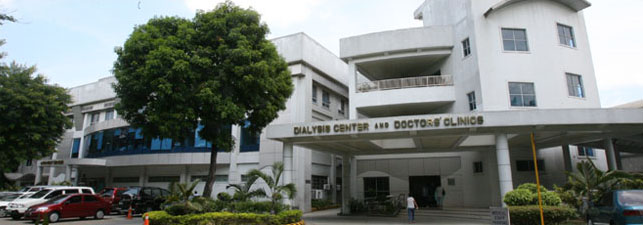The National Kidney and Transplant Institute (NKTI) Hemodialysis Center on Friday resumed full operation after it was temporarily closed last week when some patients experienced chills while undergoing dialysis.
But it has yet to receive the results of tests being conducted by the Food and Drug Administration (FDA) on all equipment and solutions used in dialysis to find out why 44 patients suffered chills late last month, said Dr. Ricardo Jose Quintos II, head of the NKTI Information Office.
“Today we put our hemodialysis outpatient unit to full operational capacity and that means we are now serving 120 patients,” Quintos told the Inquirer in a phone interview on Friday.
Last week, the NKTI was compelled to temporarily close its out-patient hemodialysis center in Quezon City after 44 patients experienced chills all at the same time while undergoing dialysis.
On Monday, the center partially reopened with 20 out of the 30 machines operated and used again, servicing some 40 patients.
Quintos said all 30 machines went fully operational and worked in four shifts on Friday “without adverse effects” on their patients. He said the NKTI addressed the machines’ “maintenance issues” before the center resumed full operation.
“We replaced the water, the filter and [other parts of the machines] even if they are not yet due for replacement,” he said, noting that the center conducts maintenance work on the machines every month.
As to what have caused the chills among the patients, Quintos said the NKTI has yet to hear from the FDA, which the institute tapped to help verify its findings that the fluids used in the dialysis triggered the condition.
Quintos said results will be available in two weeks.
“We asked the FDA to check all supplier-related equipment and that includes sterile gloves, gauze, water, sterile syringes, antibiotics, blood thinners and injections,” he said.
He said the incident proved that the NKTI had safety procedures in place for their patients.
RELATED STORIES
NKTI asks FDA to verify finding that fluids caused dialysis chills
Anticoagulant with bacteria seen to cause dialysis chills among NKTI patients
